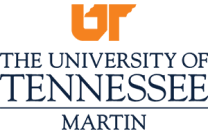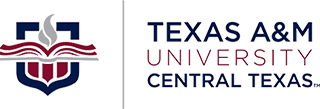Charting a New
Path for Adult Learners
Recommendations for supporting adult learner success

With adults looking to continue their education to finish what they started, advance in their career, or increase their earning potential, the nontraditional is becoming the new traditional.
Prioritizing adult learners has become critical for institutions, but while four-year colleges and universities have been historically successful in serving traditional-age, first-time college students, many often face limitations in providing the infrastructure, staffing, and budget to engage the growing population of 8 million adult learners.
Adult learners often balance school with family commitments and work obligations and require specialized recruitment strategies, targeted enrollment strategies, and personalized support. Without these strategies and support in place, it’s no surprise that only half of adult learners (50.5%) graduate within six years (National Student Clearinghouse Research Center, 2022) and that there are more than 39 million adult students with some college but no degree (NSCRC, 2022).
Working adults age 25 and older make up nearly 40% of the learners attending college in the United States
(National Center for Education Statistics, 2021)
Together, we can chart a new path for adult learners.
As a leader in supporting adult learners over the age of 25 with some college but no credential, ReUp Education has partnered with institutions and systems across the country to help adult learners reach their education and career goals. In this resource, we provide analysis from our proprietary data set and offer evidence-based recommendations that include:
- Results from an informal survey of higher-education professionals on current institutional support for adult learners
- A discussion of the challenges faced by institutions—and solutions for those obstacles
- Best practices for improving adult learner support and persistence based on our work with institutions and state systems
No matter the infrastructure, staffing, or budget, it’s possible for any institution or system to successfully engage, enroll, and support adult learners and fulfill their mission of student success.
We don’t know where adult learners are and we do not have the infrastructure or resources to support them.
— Survey participant
Engaging Adult Learners
The Challenge
In July 2022, ReUp conducted an informal survey with 70 administrators, staff, and faculty from two- and four-year colleges to better understand the state of institutional support for adult learners.
When asked whether they “have the necessary resources to find, engage, and retain adult learners from enrollment to graduation,” nearly half of our survey respondents disagreed or strongly disagreed. It’s no secret that a big challenge facing institutions is bandwidth; higher-ed professionals shared that they do not have dedicated staff, budget, or expertise to conduct specialized outreach to adult learners. But many professionals in the field also report that they lack access to firsthand information on why students stopped out or want to return, limiting their ability to craft tailored messaging for this population.
Challenges include the cost of digital marketing and the ability to hire and train enough staff to provide advising and other support services, especially for off-campus/virtual students (our primary audience).
— Survey participant
The Opportunity
Informed by millions of data points and our experience working directly with thousands of adult learners, ReUp’s insights into each learner’s barriers and motivations enable us to connect with learners using the right message at the right time through the right channel. The ReUp team—across marketing, data, learner services, and partner success—serves as an extension of an institution’s enrollment services team, helping our partner institutions leverage and maximize resources to engage adult learners and guide them on their path to success.

As a public institution, the University of Tennessee at Martin (UTM) had done all they could with limited resources to re-engage their adult learners, using surveys, emails, and reply postcards, but the response was minimal. After an analysis of UTM’s contact list, ReUp identified outdated information and updated more than 40% of student records with current email address and phone numbers. In the first 18 months of their ReUp partnership, 206 adult learners re-enrolled.

ReUp reached out to me. At the time, I was still considering going back to school but hadn’t put anything into place.
— Aaron
Student
What Motivates Adult Learners to Return?
According to student self-reports to ReUp, the top five factors motivating students to return to college are:
- Finish what I started
- Personal goal
- Make a better life for myself
- Earning potential
- Challenge myself
Knowing adult learners’ motivations for continuing their education enables ReUp and its partner institutions to segment audiences, personalize messages, and empower earners to achieve their education goals.
ReUp Recommendations
Create or improve your school’s readmission website.
An institution’s website is often the first place a prospective learner will look for information. For adult learners coming back after an extended break from school, re-enrollment policies and processes may be unfamiliar. A readmission page can serve as the first impression and indicator for an adult learner’s experience at the institution.
Readmission Website Checklist
Does the page reflect adult-learner-friendly language and copy?
Does the page communicate empathy and excitement for adult learners?
Does the page reflect images and photos of adult learners?
Does the page include clear, step-by-step readmission instructions and a working link to the application (if an application is required)?
Appoint a dedicated enrollment contact for returning adult learners.
Consider having one staff member become a single-stop insider resource for adult learners on topics such as admissions, financial aid, and academics. They can answer questions about application status, financial aid packages and appeals, and help resolve unexpected barriers to persistence. Working in tandem with the team at ReUp, this staff member can provide a personalized adult learner experience with the exact information learners need.
Enrolling Adult Learners
The Challenge
Motivating adult learners to apply and re-enroll requires significant effort, especially considering that their priorities and needs differ from those of traditional students: they are likely experiencing significant financial deterrents to attending college, juggling caretaking responsibilities for children or parents, and/or balancing school with one or more full- or part-time jobs.
Due to their unique life situations, many adult learners require flexibility of course scheduling, online and/or hybrid courses, and easy-transfer policies so that they are matched with the institution that best aligns with their goals.
The Barriers to Adult Learner Enrollment
According to the survey, these were the most significant challenges reported by higher-education professionals in recruiting and enrolling adult learners:
For Institutions
- Lack of staff and infrastructure dedicated to this population
- Cost and difficulty of marketing and outreach
- Need for coaching and support services
- Lack of transfer-friendly policies
- Uncertainty of how to reach the target population
- Need for online courses and flexible scheduling
- Need for expanded financial aid
For Learners
- Work–life balance
- Cost of a college education
- Life circumstances and personal barriers
- Lack of commitment to persist to graduation
- Questioning the value of a college degree
- Underpreparation in math and science
- Navigating the return to school
The Opportunity
We’ve found that it can take up to 42 touch points across email, SMS/text, and phone calls for a single learner just to decide to enroll. By focusing on adult learners, ReUp has helped institutions expand their learner services through targeted marketing, patented technology, and personalized support from re-enrollment through graduation.
ReUp Recommendations
Streamline admissions requirements.
For adult learners juggling multiple obligations at home and work, time is one of the majors standing in the way to re-enrollment. Simplifying any application forms and the readmission requirements for these learners reduces friction and makes the process more equitable. The easier the process, the more likely adult learners will enroll. ReUp’s partner institutions have seen success in removing the following from the readmissions process for adult learners:
- Essays
- Letters of recommendation
- Testing
- High-school transcripts
Offer financial incentives and assistance beyond the FAFSA® to returning adult learners.
Adult learners report to ReUp that the #1 reason they originally stopped out was financial. These students also report that finances are a significant barrier when they consider returning to school. Offering targeted incentives and assistance—such as FAFSA® guidance, debt forgiveness, financial aid and scholarships for students who are near completion, and textbook stipends—boosts both enrollment and graduation rates.
Eliminate application fees.
The average application fee for colleges reporting to the Department of Education’s Integrated Postsecondary Education Data System (IPEDS) is $50. Public institutions (91%) are significantly more likely to charge an application fee than private colleges and universities (57%). For many adult learners, however, this fee is a major barrier to access, discouraging lower-income learners who are forced to decide between submitting an application and paying for essentials. Eliminating application fees—or, at minimum, offering an easy-to-complete fee waiver—increases the number of applications from low-income and first generation students and signals to returning adult learners that they are welcome and that the institution understands their challenges, increasing the probability that they will return.
Early on in the process, we started learning what they were saying about why they stopped out, what were the challenges they were facing. This got us looking at life balance, academic preparedness, a connectedness to campus, finances — all those which are pretty common, but we got more detail about, ‘Oh, this student had this challenge’ and this might be a little bit more nuanced than what we would get just from them filling out a drop card or the information we collect internally.
— Clifton Jones
Assistant Vice President for Enrollment Management,
Texas A&M University-Central Texas

Supporting Adult Learners
The Challenge
The need for specialized support does not end once adult learners have re-enrolled. In the survey, 41% participants disagreed or strongly disagreed when responding to the prompt “We are satisfied with our retention rate for adult learners.”
Because of their varied priorities and responsibilities, adult learners require greater flexibility in terms of academic course offerings and student success resources, such as advising, tutoring, and career counseling if they are to persist to graduation. Adult learners benefit when institutions offer access to the business office, financial aid advising, and academic advising outside traditional business hours and online. When such services are not available, the likelihood of adult learners stopping out for the first or subsequent times increases.
To stay on track to graduation, adult learners need easy-to-find support to help them understand financial aid, access academic support, gain motivation and accountability, develop a sense of belonging, and navigate the “hidden curricula” of college.
The Opportunity
ReUp understands the challenges and needs of working adults returning to school to complete their degrees. Regular check-in communications and followup sessions ensure that students register each term, feel confident about starting each semester, maintain their motivation through midterms and finals, and have strategies in place when encountering obstacles.
As a strategic partner, ReUp also provides evidence-based insights and tailored recommendations on key areas of improvement for adult learner success. We’ve leveraged our experience to collaborate with institutions as they develop resource websites geared toward adult learners and implement academic and cocurricular support to increase retention among returning students.
ReUp Recommendations
Provide academic advising with flexible hours.
Early in the enrollment process and throughout their college journey, adult learners benefit from go-to staff members at their school who can offer more than help with course selection during registration. In addition to having a trusted academic advisor who is available during evening hours who can answer their questions or connect them to the right offices, these students benefit from expert guidance in exploring their academic interests, choosing a program of study that suits their goals, and locating student-support resources, such as academic tutoring and mental health counseling. Providing such services demonstrates the institution’s commitment to adult learners’ success while improving students’ trust of and therefore their likelihood of graduating.
Connect college to career through professional-development opportunities.
In addition to personal motivations, a large percentage of adult learners report to ReUp that they want to return to college to increase their earning potential, improve job mobility, build a professional network, and/or change careers. Providing this population with free access to career assessments and planning tools as well as individualized counseling on professional development, interviewing skills, and résumé writing is therefore crucial to retention. Outreaching adult learners to inform them of opportunities to shadow or otherwise network with alumni to explore their fields of interest also drives persistence.
Looking to the future
As higher education looks to the future, identifying and implementing best practices for supporting adult learners from recruitment through graduation will be critical to staying relevant and fulfilling the mission for student success.
ReUp works with each of our partner institutions to craft a tailored solution that fits their budget and needs, serving as an extension of an institution’s enrollment team and providing adult learners with the personalized support they need to succeed.
The thing that helps you most is having somebody in your corner because some people don’t have people to push them, tell them they can do it, hold them accountable, and help guide them.
— Sonya
ReUp alum and Old Dominion University graduate

Let’s start the conversation
Schedule a call with a ReUp team member to learn more about what a ReUp partnership could do for your institution.